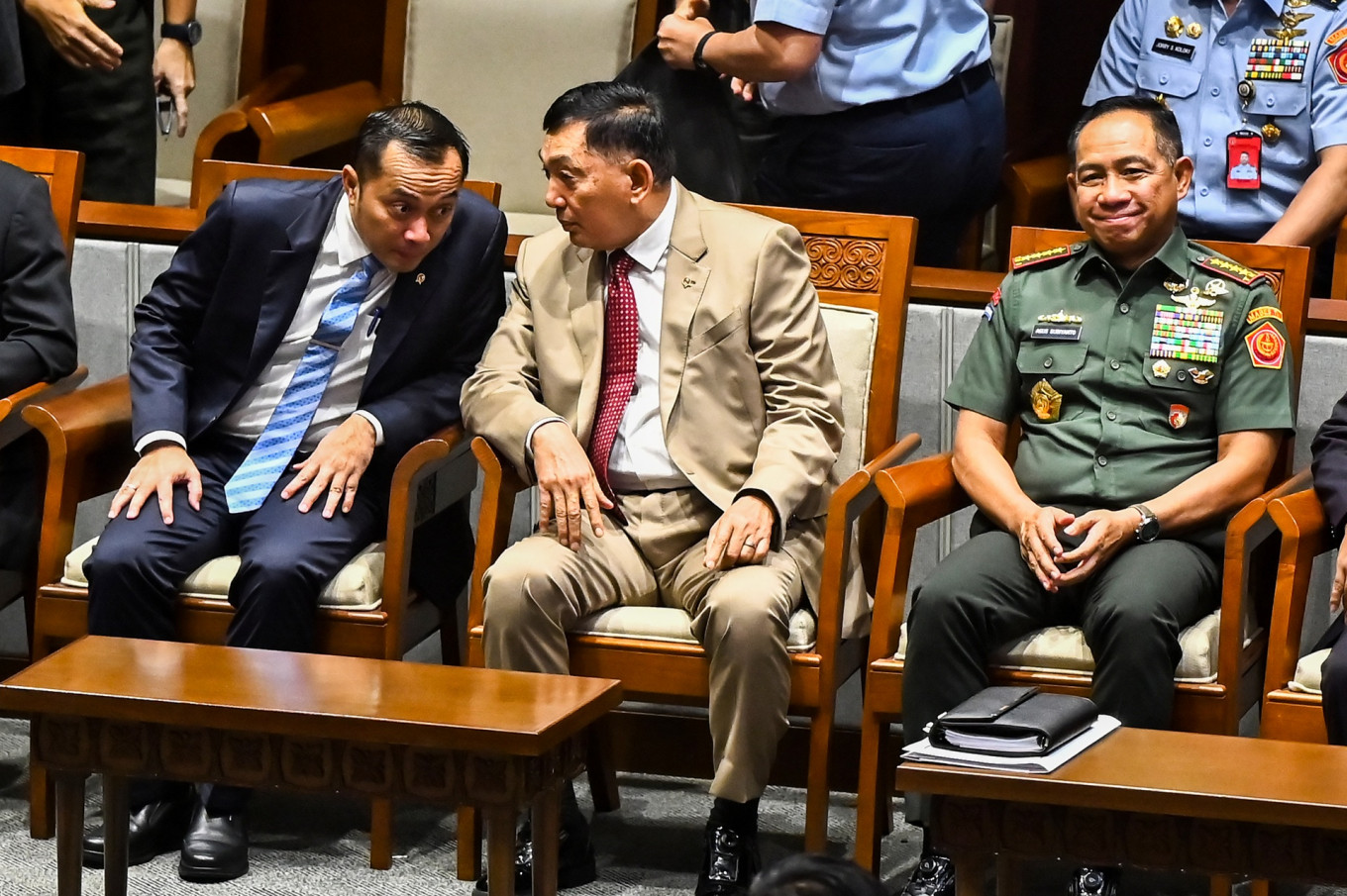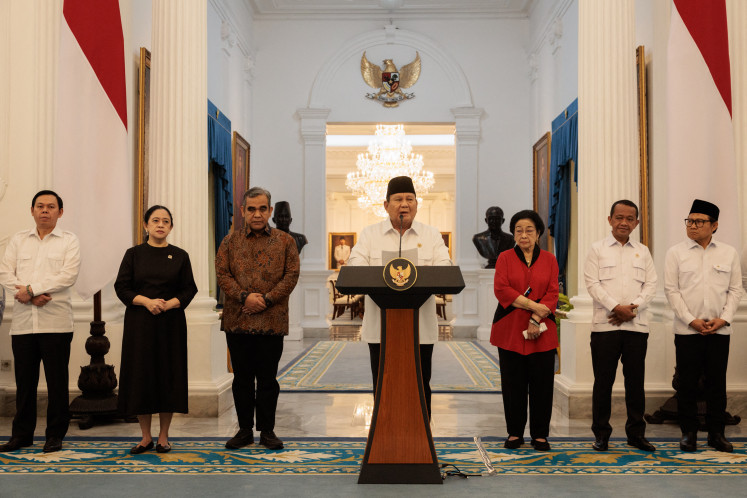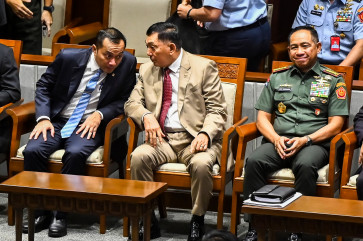Popular Reads
Top Results
Can't find what you're looking for?
View all search resultsPopular Reads
Top Results
Can't find what you're looking for?
View all search resultsTNI Law revision: Time for Indonesia to ratify Rome Statute
The passage of the TNI Law revision this week raises pertinent questions about potential foreign interference as the government's reasoning behind its persistent refusal to ratify the Rome Statute, which allows the ICC to step in only when national courts fail to administer justice in serious crimes, such as human rights abuses involving a country's military.
Change text size
Gift Premium Articles
to Anyone
 Defense Minister Sjafrie Sjamsoeddin (center) speaks with State Secretary Prasetyo Hadi (left) as Indonesian Military (TNI) commander Gen. Agus Subiyanto looks on during the House of Representatives’ plenary session on March 20, 2025, when lawmakers passed a revision to the 2004 TNI Law at the Senayan legislative complex in Jakarta. (Antara/Rivan Awal Lingga)
Defense Minister Sjafrie Sjamsoeddin (center) speaks with State Secretary Prasetyo Hadi (left) as Indonesian Military (TNI) commander Gen. Agus Subiyanto looks on during the House of Representatives’ plenary session on March 20, 2025, when lawmakers passed a revision to the 2004 TNI Law at the Senayan legislative complex in Jakarta. (Antara/Rivan Awal Lingga)
T
he House of Representatives passed on March 20 a revision to Law No. 34/2004 on the Indonesian Military (TNI), which allows active officers to hold posts at 14 civilian institutions. This expansion of military influence in governance raises serious concerns about accountability and civilian oversight, echoing the dwifungsi (dual function) of the military during the Soeharto era, when the armed forces controlled security and civilian administration.
At a time when democracy should be strengthened, the law revision risks weakening checks on military power.
Even more concerning is Indonesia’s continuing refusal to ratify the Rome Statute of the International Criminal Court (ICC), a treaty designed to prosecute crimes against humanity, war crimes and genocide when a country’s courts fail. With military officers gaining influence in civilian institutions, the likelihood of accountability for such violations diminishes even more, making the case for ICC jurisdiction more urgent than ever.
Article 47 of the revised TNI Law No. 34/2004 removes previous restrictions on active-duty officers assuming civilian roles, reversing post-Soeharto reforms that aimed to establish civilian supremacy. This revision is feared to undermine Indonesia’s commitment to democratic governance and human rights.
Moreover, the current administration appears intent on restoring the TNI’s past role in civilian affairs, which was long characterized by widespread abuse and impunity, raising fears that military officers will dominate political decision-making without proper oversight.
The Rome Statute, adopted in 1998, established the International Criminal Court (ICC) to prosecute the most serious international crimes. The ICC operates under the principle of complementarity, meaning it only intervenes when national courts fail to prosecute these crimes. This system respects national sovereignty while ensuring that justice is not denied.
Indonesia signed the Rome Statute in 2000 but has not ratified it, citing concerns over foreign interference. In 2013, then-law and human rights minister Amir Syamsuddin justified this stance, stating: “Indonesia has its own legal system that is capable of handling human rights violations. We do not need an external body interfering in our domestic affairs.”


















